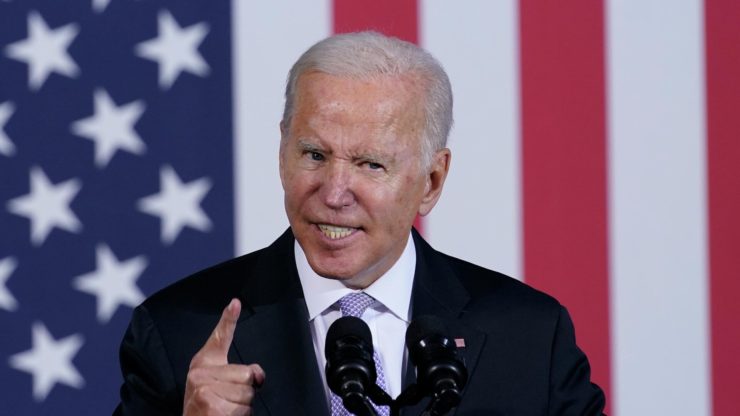
With Joe Biden, all set to exit the White House later this year, his one-term presidency has begun to come under increasing scrutiny to determine his legacy. What sort of President Biden is/was? To what extent was he able to achieve his foreign policy goals? What characterizes his era? Unlike Trump’s “Make America Great Again” and subsequent US “exit” from the Middle East and America’s “forever wars” in Afghanistan, Biden’s main legacy is his interventionist foreign policy. These interventions, however, were unlike the direct military interventions of the Bush and the Obama administrations. Rather, they are more indirect in which the US remains a primary player, both overtly and covertly. The purpose was to recover from the “damage” that the Trump administration did to American supremacy.
What Biden Promised and Did
He had his own “doctrine” with “America is back” as its foundation. The emphasis on “back” was not just rhetorical; it reinforced a potential reversal of what the Democrats and the US deep-state saw as Trump’s disastrous foreign policy that scaled back the level of American engagement with the world. But this emphasis on “back” was a double-edged sword. Biden, as it stands, also continued to follow in the footsteps of his predecessor vis-à-vis China and Israel. Instead of ending Trump’s “trade war” on China, Biden intensified it. By doing this, he essentially reinforced Trump’s legacy. US-China ties hit rock bottom much harder than they did in the pre-Biden due to Biden’s politics of “de-coupling”. In terms of Washington’s ties with Israel, Biden also continued to pursue, albeit mindlessly, the politics of the Abraham Accords. Its purpose was to find Israel friends in the Middle East, so the US could “exit” the region and focus more on the Indo-Pacific region to tackle China.
Where Biden did change his course was his policy towards Europe and Russia. During the Trump era, the French President declared NATO “brain-dead”. Its primary reason was Trump’s push for NATO countries to pay their due share of the alliance. It caused internal fractures in the alliance. It looked beyond repair when European leaders began to contemplate a European security infrastructure. Clearly, the Trump administration did not see NATO – and American hegemony of the alliance – as a desirable instrument of foreign policy. They did not have any issues with Russia. But the Democrats – and their supporters in the American deep-state – saw things differently. As such, when Biden became president, he began an aggressive push to revive NATO. His remedy was the alliance’s expansion to include Ukraine and keep US hegemony intact in Europe.
What Biden Achieved
Besides intensifying the “trade war” on China, Biden’s legacy involves two new military conflicts – and thousands of deaths – in Eastern Europe and the Middle East. By pushing for NATO’s expansion, Biden created conditions for Russia’s military operation in Ukraine – a conflict directly sponsored by the US war machine with hundreds of billions of dollars. Surely, this conflict allowed the US to still expand NATO by including Sweden and Finland as its two new members. It has also allowed the US deep-state to keep NATO relevant as the main instrument of US control of European security. Still, the deep state is pushing to expand NATO even beyond Europe to tackle China in Asia. NATO has an office in Japan, and it is actively seeking to carve out space for itself in the region. This push, however, has only forced countries in the Indo-Pacific to face strong prospects of ‘Cold War 2.0’. It means Biden’s legacy for this region is the prospect of new conflicts.
Biden’s mindless pursuit of the Abraham Accords and a deal between Saudi Arabia and Israel threatened to bury the Palestine question permanently without any meaningful resolution. It created conditions that led Hamas to attack Israel on the 7th of October 2023. Israel’s subsequent genocidal war on Gaza continues to rest on unhindered US military – and diplomatic – support. Even though Biden claimed to restore democracy when he assumed the presidency, his definition of democracy includes no mechanism to prevent the ruthless killing of more than 40,000 innocent human beings in Gaza. That’s a legacy that no one can take away from Biden!
Shaky Foundations
Biden may have begun a ‘new’ era of indirect American interventions to protect US hegemony. But this ‘new’ era stands on very shaky foundations. All of this could fall like a house of cards if Donald Trump returns to the White House with his “Make America Great Again” and begins to reverse US engagement. He has already indicated on several occasions that he could abruptly end the Russia-Ukraine conflict.
Whereas Kamala Harris’ win could keep the “Biden doctrine” intact, she may have different ideas, although following them would require overcoming the US deep-state. Still, her presidency lacks a strong foundation for the US to re-establish itself as a superpower. For one thing, despite Biden’s consistent engagement with countries in the Indo-Pacific, his administration failed to come up with a single economic programme of a magnitude large enough to counter China’s Belt & Road Initiative (BRI) anywhere in the world. This, too, is one of Biden’s legacies that brought more harm than good to Washington’s global standing. On the other hand, the recent death of the petrodollar system means considerably diminished US ability to control the global economic system via its national currency, leaving Washington much more vulnerable to economic crises than it was before. Obama killed Osama bin Laden and Trump brought America’s longest war to an end by signing a pact with the Taliban, does Biden have anything to be proud of? Hardly anything.
Salman Rafi Sheikh, research analyst of International Relations and Pakistan’s foreign and domestic affairs, exclusively for the online magazine «New Eastern Outlook»
